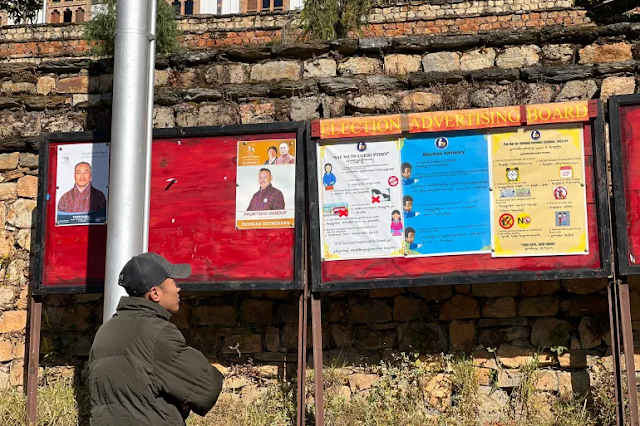Bhutan Faces Economic Challenges as General Election Puts "Gross National Happiness" to the Test
Bhutan, the enchanting Himalayan kingdom known for prioritizing "Gross National Happiness" over economic growth, is on the verge of a general election that will confront serious economic challenges. Both political parties vying for victory in this election share a commitment to a constitutionally enshrined philosophy that emphasizes the "happiness and well-being of the people."
As Bhutanese citizens prepare to cast their votes, the nation grapples with pressing issues, particularly those affecting the younger generation. Chronic unemployment and a notable brain drain, with a significant number of youth seeking opportunities abroad, are among the concerns at the forefront of voters' minds.
Farmer Kinley Wangchuk expressed a sentiment echoed by many: "What we really need is more jobs for young people." Bhutan's youth unemployment rate, according to the World Bank, stands at 29 percent, while economic growth has averaged a modest 1.7 percent over the past five years.
Record numbers of Bhutanese youth have left the country, with Australia emerging as a top destination. The mass exodus is a central theme for both contesting parties, emphasizing the urgency of addressing economic challenges and retaining skilled individuals.
Pema Chewang of the Bhutan Tendrel Party (BTP) expressed concern about losing the "cream of the nation," emphasizing the potential consequences of empty villages and a deserted nation if the trend continues. Tshering Tobgay, former prime minister and leader of the People's Democratic Party (PDP), highlighted Bhutan's "unprecedented economic challenges and mass exodus."
Economic diversification projects initiated by the previous government, such as a special economic zone on the Indian border and cryptocurrency-mining plans, aim to bolster the economy. Both political parties have pledged increased investment in hydropower, Bhutan's primary source of energy, to create jobs and stimulate economic growth.
Tourism, a vital contributor to Bhutan's economy, has struggled to recover from the impacts of the COVID-19 pandemic. Foreign tourist numbers in 2023 were only a third of the 316,000 recorded four years earlier. To address economic hardships, the government reduced the daily fee for foreign visitors to ensure sustainability.
As Bhutan heads to the polls, the election campaigns, consistent with the nation's subdued political atmosphere, have focused on pressing issues and proposed solutions. Both China and India, Bhutan's populous neighbors, closely monitor the election, particularly in light of strategic contested border zones.
The outcome of the election will determine Bhutan's path forward as it grapples with economic challenges while striving to uphold its unique commitment to prioritizing the well-being and happiness of its citizens.

.png)
Comments
Post a Comment